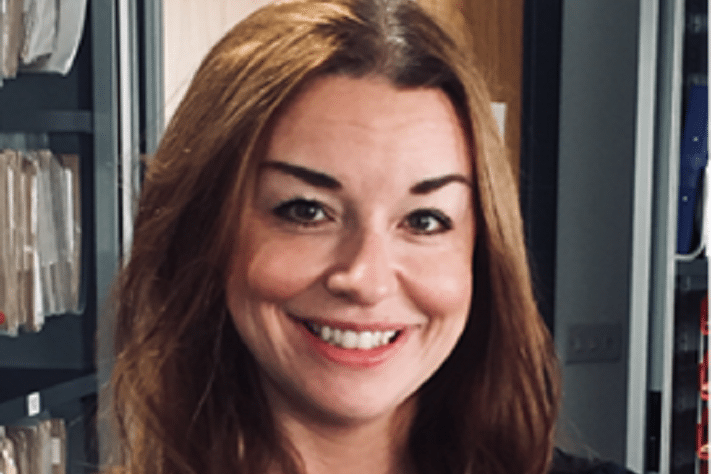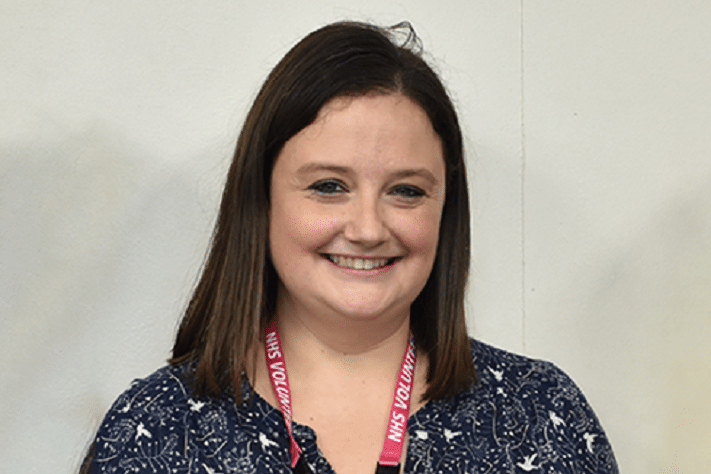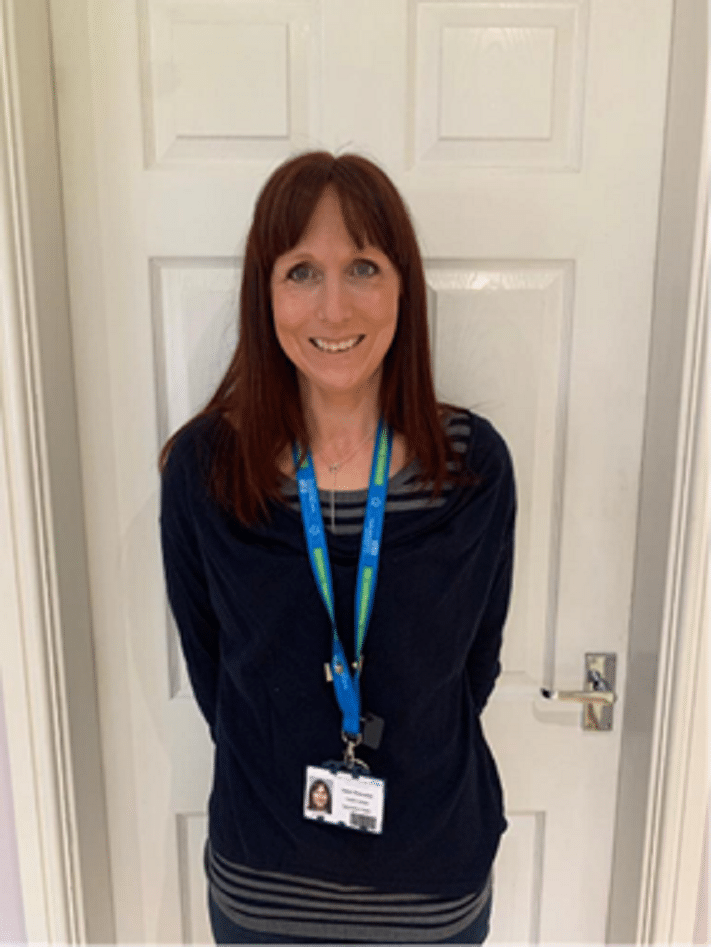21st April 2020
A blog by Eileen O’Sullivan, Specialist PIMH Health Visitor (South Warwickshire NHS Foundation Trust), on the crucial role of the Specialist PIMH Health Visitor during the COVID-19 pandemic.

Eileen O’Sullivan – Specialist PIMH Health Visitor (South Warwickshire NHS Foundation Trust)
The old proverb about it taking a village to raise a child has never felt more relevant than in this current climate, where our communities are inside and our social connections so very limited. The COVID-19 pandemic has presented not only fears and worries about our physical health and mortality, but the upshot is a change to the fundamental way in which we live and interact with others. For universal health visiting services this has created many challenges and, for the families we work alongside, the concerns surrounding financial hardship; “lost” maternity leave; no available practical and emotional support of family and friends due to social distancing restrictions; pressures of home-schooling; changes to family routines and couple relationships; pressurised or difficult home environments and health anxieties for our loved ones, have all led to a sharp increase in poor mental health. The Lancet reported this week about the profound impact COVID-19 is having on societal mental health, so it feels only pertinent to think about the important role of the Specialist Health Visitor in Parent and Infant Mental Health (SP HV PIMH) at this time.
SP HV PIMH have a crucial role within the delivery of effective mental health care to parents and children within the health visiting service, working across multidisciplinary pathways and with a variety of different agencies, to provide comprehensive and timely support. It is widely accepted that the perinatal period is a time of increased risk for parental mental health problems and the current pandemic is further increasing that vulnerability.
The role of the SP HV PIMH is one of leadership within PIMH; and Health Education England (2016) describe them as “innovators in service development.” In South Warwickshire NHS Foundation Trust, our SP HV PIMH workforce have responded to the need for innovative service delivery in this current climate and have developed responsive new ways of working to support our local families and provide much needed family support and to act as a resource and support for our HV colleagues. Through collaboration with By Your Side, a local peer support group for parents who have experienced perinatal mental health issues, a COVID-19 Wellbeing Resource Pack has been developed and distributed through NHS and local council websites and various social media platforms. The pack pulls together local and national resources and provides suggested ideas on self-care, emotional wellbeing, and ways of accessing support.

Leanne Howlett – Chair (By Your Side peer support group – South Warwickshire)
SP HV PIMH have also worked in partnership with By Your Side to facilitate online ‘baby groups’ where local agencies and support services come together for parents to drop in and access support and advice with their emotional health whilst also building local connections with other parents. HV colleagues have been identifying and referring those with a greater need for intense support, where symptoms have been exacerbated due to the current pandemic. In addition to telephone calls, we are delivering new virtual face-to-face contacts through video conferencing platforms which we feel has enabled a connected dialogue and rapport to be built. Furthermore, SP HV PIMH have worked with AVIGuk to consider how Video Interaction Guidance (VIG) can be virtually delivered and have adapted this service to ensure that the focus on supporting the parent–infant relationship, reflective parenting and early attachment are still prioritised. We hope that the measures we have put in place will go some way to mitigate against what is being acknowledged as the “second pandemic” (as referenced by Dr Cheryll Adams: iHV, Voices- Is a secondary pandemic on its way? 06/04/20).
In a time of great uncertainty, the role of the SP HV PIMH is paramount in responding to this crisis. SP HV PIMH are leading and shaping creative ways of reaching out to families, despite the incredibly challenging restrictions/circumstances. As we move forward, we endeavour to support families and colleagues in the present, whilst simultaneously forward-planning and preparing for the long-term mental health impact on families so that when the time comes, to link back to the opening proverb, when we all step back into “our villages” we are all equipped to support not only the child, but the parents and whole family too.
Eileen O’Sullivan – Specialist PIMH Health Visitor (South Warwickshire NHS Foundation Trust)

Nadine Anderson – Specialist PIMH Health Visitor (South Warwickshire NHS Foundation Trust)

Claire Townsend – Specialist PIMH Health Visitor (South Warwickshire NHS Foundation Trust)







